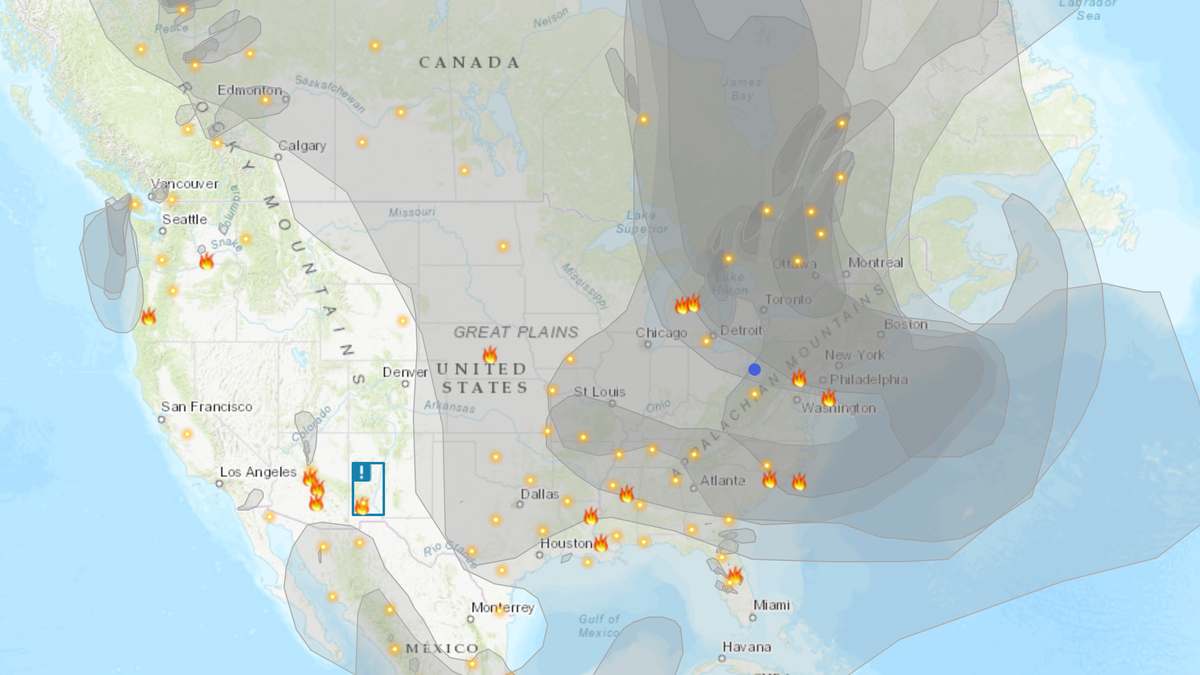Here’s How N95 Protects You From Wildfire Smoke

I woke up this morning to an air quality alert, as probably many of you do. Smoke from wildfires in Canada has shifted to the eastern United States, causing air quality to deteriorate in many areas. New York City has issued a warning for people with heart or breathing problems to wear a mask when they are outdoors, and many of us on the East Coast should do the same.
Yes, N95 masks protect against wildfire smoke.
You may be accustomed to thinking of masks simply as COVID protection, but the masks we consider high quality for protection against respiratory viruses are the same masks that are recommended when there are particulate matter in the air, including wildfire smoke.
The “95” in their name means they have been tested to block at least 95% of particles 2.5 microns wide or larger. These particles can penetrate deep into our lungs, causing short-term irritation and contributing to health problems like asthma. People with heart disease and breathing problems are especially vulnerable to exposure to fine particles , which is why there are masks designed to protect against them and air quality forecasts that take into account how many PM2.5 particles (as they are called) are in the air. air.
Protect your lungs with these particulate-reducing materials:
- These are my favorite N95 masks .
- This Coway Airmega is a solid air purifier if you want to buy one.
- This mini air purifier is an affordable option for small spaces.
How to Protect Your Lungs from Wildfire Smoke
Wearing an N95 mask (or better) is an important way to protect yourself, especially when you are outdoors. Check the map at airnow.gov to see the air quality in your area; right now, New York and Washington DC are at an “unhealthy” level. The next level down is “unhealthy for sensitive groups,” which includes children and the elderly, as well as anyone who knows they have diseases that affect the heart or lungs.
We have a guide to precautions you can take when there is wildfire smoke in your area. Make sure your mask fits well, with no gaps around your face. If you can’t get N95, surgical masks or cloth masks are better than nothing – just be aware that they provide significantly less protection.
Staying indoors with the windows closed is also a good idea if you can. If you have an air purifier, use it. (You can even build one cheaper with a box fan and stove filters.) If your air conditioner has a “fresh air” intake, close it – the outside air isn’t fresh right now.
Do not light candles or smoke, as they add more particulate matter to the air. In the meantime, you can improve outdoor air quality by cutting down on driving or operating lawn mowers, and by saving backyard firesides for next time. This article has been edited after publication to correct information about the N95 masks feature. They block particles 2.5 microns wide or larger, not 2.5 microns wide or less .